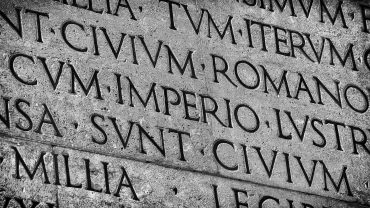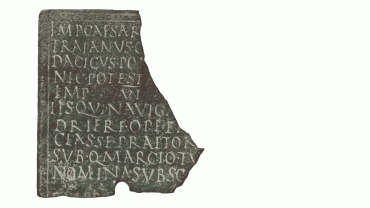
- AI
DeepMind Launches AI Tool to Decode Ancient Latin Inscriptions
6 minute read

Google DeepMind’s Aeneas AI system helps historians analyze 150,000 Latin inscriptions while achieving 90% research effectiveness
Key Takeaways
- Google DeepMind launches Aeneas AI tool to help historians decipher ancient Latin inscriptions, analyzing approximately 1,500 newly discovered texts annually across a database of 150,000 inscriptions.
- Academic validation demonstrates 90% research value as study with 23 historians shows Aeneas generates useful research ideas for most tested inscriptions while improving accuracy of origin determinations.
- Open-source release targets educational markets with DeepMind making the tool freely accessible to museums, schools, and academics while exploring partnerships in cultural and academic sectors.
Introduction
Google DeepMind transforms ancient history research with the launch of Aeneas, an artificial intelligence system designed to decode Latin inscriptions carved in stone across the former Roman Empire. The AI tool addresses a persistent challenge facing historians who discover around 1,500 Latin inscriptions annually, offering computational analysis of weathered texts that span two millennia of Roman civilization.
Aeneas processes partial transcriptions and images of ancient inscriptions to suggest possible dates, geographic origins, and reconstructions of missing text fragments. The system builds on Google’s previous archaeological AI tool, Ithaca, which focused on Greek texts, demonstrating the company’s continued investment in specialized historical research applications.
Key Developments
The development team trained Aeneas using the Latin Epigraphic Dataset, comprising over 176,000 inscriptions from across the Roman Empire’s five million square kilometers of territory. This curated database represents texts ranging from imperial decrees to everyday graffiti, such as Pompeii’s famous “Beware of the dog” mosaic warning.
DeepMind collaborated with universities including Nottingham, Warwick, and Oxford to validate the system’s capabilities. Researchers tested Aeneas on the Res Gestae Divi Augusti, Emperor Augustus’s autobiographical inscription, where the AI identified previously unnoticed parallels with Roman legal documents and detected specific “imperial political discourse” patterns.
The generative neural network analyzes both textual content and visual features of inscriptions, comparing findings against its comprehensive database to identify linguistic parallels. For fragmentary texts, Aeneas can reconstruct complete phrases, such as rebuilding “Senatus populusque Romanus” from partial stone carvings.

Market Impact
The launch positions DeepMind in the emerging market for specialized AI applications beyond general-purpose language models. While the academic sector represents a niche compared to commercial AI deployments, the project demonstrates technical capabilities that differentiate DeepMind from competitors focused solely on mainstream applications.
Educational institutions show strong adoption interest, with Belgian schools already incorporating Aeneas into history curricula. Museums and archaeological sites represent additional target markets for the open-source tool, potentially expanding DeepMind’s influence in cultural and educational sectors.
The project attracts attention from funding bodies and academic partners, establishing DeepMind’s credibility in specialized research applications. This positioning could generate future grant opportunities and collaborative agreements with cultural institutions globally.
Strategic Insights
DeepMind’s strategy emphasizes proprietary dataset creation as a competitive advantage. The Latin Epigraphic Dataset required extensive curation and harmonization, representing significant investment in specialized data assets that general-purpose AI models cannot replicate effectively.
Academic partnerships provide access to domain expertise while building credibility for AI applications in humanities research. These collaborations create validation pathways that purely commercial development approaches cannot achieve, establishing trust within scholarly communities.
The open-source release strategy differs from typical AI product launches, prioritizing adoption and academic goodwill over immediate monetization. This approach builds long-term relationships with educational institutions and positions DeepMind as a thought leader in AI applications beyond commercial markets.
Expert Opinions and Data
Alison Cooley, Professor of Classics and Ancient History at the University of Warwick and co-author of the Nature paper validating Aeneas, confirms the system successfully contextualizes ambiguous inscription features. Testing on the RGDA inscription, Aeneas proposed two probable date ranges that align with current academic debates about the text’s composition timeline.
Thea Sommerschield, epigrapher at the University of Nottingham, describes using Aeneas as “solving a grand jigsaw puzzle where single pieces emerge more meaningful as part of a whole.” Her analysis of the Monumentum Ancyranum in Ankara, Turkey produced results she characterized as “jaw-dropping” for their consistency with established historical analyses.
Study results involving 23 historians demonstrate Aeneas generates research ideas for 90% of tested inscriptions according to Google DeepMind. Yannis Assael from Google DeepMind emphasizes the tool complements rather than replaces human expertise, providing multiple hypotheses that streamline traditional research methodologies.
Professor Dame Mary Beard calls Aeneas a “really exciting and expert test run for the use of AI in the study of Roman inscriptions” that “opens up entirely new horizons” for the field. However, Kathleen Coleman of Harvard raises concerns about the system’s effectiveness with lesser-studied samples compared to well-documented inscriptions.
Conclusion
Aeneas represents DeepMind’s expansion into specialized AI applications that serve academic communities while demonstrating technical capabilities in niche domains. The tool’s open-source availability and educational partnerships establish foundations for broader adoption in cultural institutions and research organizations.
The project illustrates how AI companies can differentiate themselves through specialized applications that require domain expertise and curated datasets. DeepMind’s investment in historical research tools positions the company as an innovator addressing complex problems outside mainstream commercial markets, potentially attracting new funding sources and collaborative opportunities in the academic sector.







